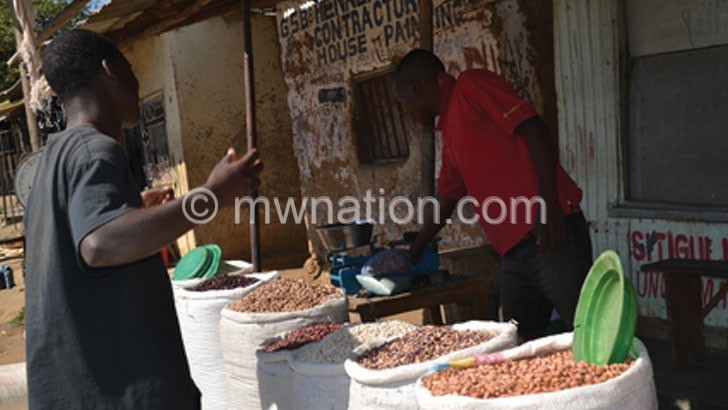Legumes production Project botched up
Malawi may not have fully benefited from legume production over the past five years despite having provisions for the same in the national budget in excess of K6 billion, it has been established.
For the past five years, government has been allocating funds in the budget for legumes production, which, according to Minister of Finance, Economic Planning and Development Goodall Gondwe has potential to generate up to $200 million (K146 billion) in exports annually.
In this fiscal year, the minister expressed government’s commitment to continue promoting legume production, saying it will provide legume seed.

Gondwe said legumes have a ready international market, especially in India, such that they have huge potential to resolve the country’s foreign exchange challenges.
He said: “Government would like to encourage farmers to grow as many legumes as possible, because of the multiple advantages of these crops. The Ministry of Industry, Trade and Tourism will be responsible for organising the marketing of legumes domestically and overseas, and together with the Treasury and the Reserve Bank of Malawi, they will ensure that the foreign exchange earned flows back into Malawi.”
Treasury spokesperson Nations Msowoya, in a written response to questions last week, admitted that the venture has not fully succeeded, blaming it on poor management of funds and institutional framework in the previous years, which has hindered realisation of the programme’s core objective.
He said money was pumped into legume production and inputs were given to various groups, but the outcome has not been satisfactory.
Said Msowoya: “We wanted the agreements reviewed before going full-scale with implementation having noted the loop holes in the previous seasons. In the absence of proper institutional framework, it was also difficult to implement the programme.
“We needed to have farmers organised in different groups; hence, the money was never funded in the previous seasons.
“Besides that, you will remember that the budget was reviewed downwards when we experienced revenue shortfalls and this was one of the items that was affected.”
Meanwhile, he said government is still thrashing out implementation modalities with key stakeholders such as ministries of Industry and Agriculture to see how best to implement the programme.
There seems to be a feeling that the money allocated in the previous budgets has not been audited and Public Accounts Committee (PAC) of Parliament chairperson Alekeni Menyani on Monday said they have not received any information on legume funding for auditing purposes, referring the matter to National Audit Office (NAO), which has not yet responded to our questions as we went to press.
But Civil Society Agricultural Network (CisaNet) national director Tamani Nkhono-Mvula in an interview described the situation as unfortunate in view of the benefits that legumes could bring in the country.
“We have been tracking budget presentations annually, but what is presented is usually not implemented,” he said.
Seasoned farmer Felix Jumbe, who is also former president of the Farmers Union of Malawi (FUM) and current member of Parliament (MP) for Salima Central, blamed political interference in issues of this nature.
He said the absence of an organised market for the legumes could also be an issue towards realising the crop’s potential.
Lilongwe University of Agriculture and Natural Resources (Luanar) head of agribusiness management Joseph Dzanja has since warned that Malawi could be missing out on millions of dollars if it fails to prioritise legumes as a commercial crop. n





